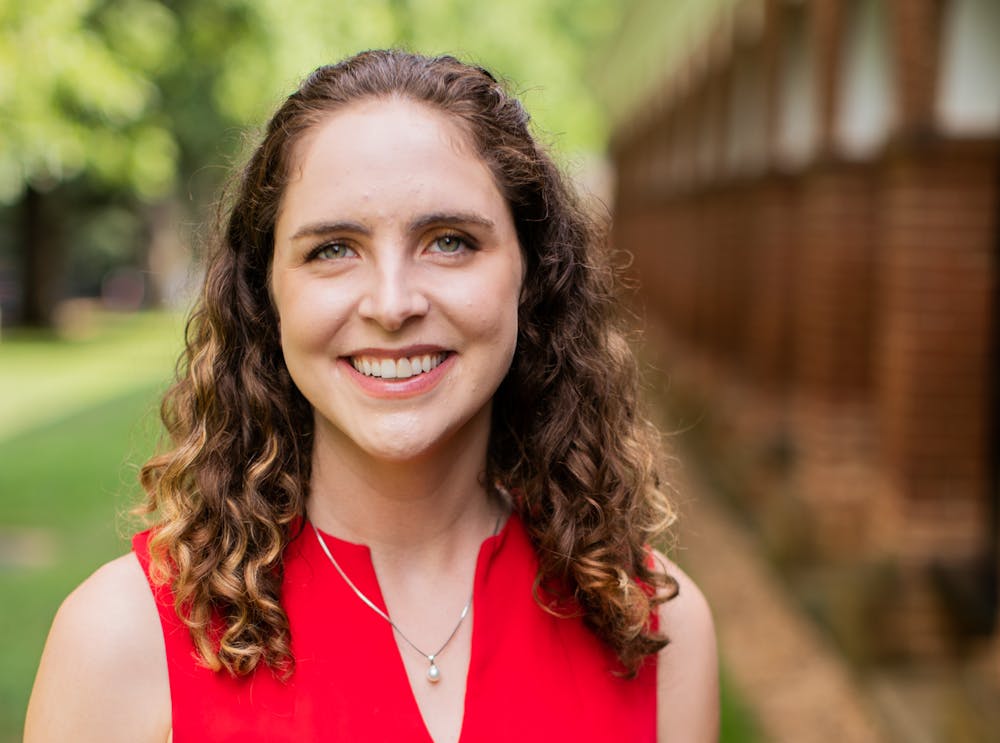Despite University President Jim Ryan joking about a name change, I believe he was serious when challenging the University to be good. The United Campus Workers of Virginia demands the University fulfill this promise by providing childcare to University employees. To meet this call, the University should provide intentionally diverse Montessori care to the children zero-to-five of staff, faculty and historically marginalized Charlottesville community members — the individuals most affected by the University’s expansion. There are not only overwhelming benefits of early childhood education in Montessori schools, but also providing childcare for these groups would help to further integrate schools, promote equity and align interests across different demographics.
ECE in general provides societal benefits with research linking quality pre-K to initial testing gains, increased earnings and reduced incarceration, with pronounced effects for Black and Latine youth. Similarly, development in the ages of zero to three has long-term impacts on wellbeing. Finally, ECE is cost-effective and prominent in similarly resourced countries — so there are plenty of models for implementation in our own communities.
Particularly, Montessori is popular locally and approved by the Virginia Department of Education. This progressive approach to education prepares future citizens through the incorporation of student autonomy, collaboration, signature materials, lengthy work blocks, freedom of movement and multi-age classrooms. A Montessori meta-analysis demonstrates positive effects on cognitive, social, motor and creative outcomes. For pre-K students specifically, Montessori education has been linked to improvements in academic skills and academic enjoyment, executive function and socio-emotional regulation.
Professor Angeline Lillard, a leading Montessori scholar and her students have expressed desire for a Montessori Lab School and certification, which Virginia recently approved to substitute for a traditional teacher licensure. Montessori is also associated with increased teacher satisfaction, which could address issues around teacher recruitment and working conditions — meaning it might be relatively easy to implement right here on Grounds. It is worth noting, too, that Montessori ECE is in demand, which policymakers elsewhere have leveraged to integrate student and family networks across lines of race, ethnicity and socioeconomic status.
Just implementing Montessori ECE, however, is not enough for the University. This programming must be intentionally diverse, for this University to address its problematic history and safeguard the future of our pluralistic democracy. Causal studies find desegregation improved education attainment, earnings and health as well as reduced incarceration for Black students, without harming white students, with some suggesting academic benefits to Latinx students as well. Studies today in diverse schools demonstrate similar positive academic effects for non-white students. Socioeconomically integrated pre-K, specifically, is associated with more receptive language, socio-emotional, and math skills, plus fewer negative student-teacher interactions than homogenous high-needs classrooms.
Ethno-racial and socioeconomic diversity hold the potential to reduce implicit bias and bridge social capital networks. An intentionally diverse Montesssori pre-K would promote cross-race interactions, which are associated with a reduction in intergroup prejudice. Racial prejudice emerges between ages five to seven, suggesting the importance of early intervention. Furthermore, socioeconomic interconnectivity increases economic mobility and earnings. Intervention in the form of an intentionally diverse Montessori ECE program would bring University community members, from custodians to professors, in proximity with one another, leveling the playing field for a new generation of citizen leaders.
Past desegregation efforts, however, demonstrated that proximity is only a first step when seeking inclusive, power-balanced environments. For example, during court-ordered desegregation, Black teachers and administrators were fired, resulting in higher rates of disciplinary outcomes, like suspension and expulsion, as well as special education classifications for Black students. This indicates the need for strategic teacher recruitment, the establishment of affinity spaces and intentional community-building across power-differentials, as modeled by organizations like Kindred.
When offering an in-demand pedagogical model, there is risk for privileged families to take over. To prevent this and avoid legal challenges, the University should admit students via a lottery with a third of the seats going to lower- income families, another third going to middle-income families and the final third going to higher-income families. Additionally, for ages three and four, the University could receive different types of state funding along with Lab School and philanthropic supplements to increase access for income-qualifying families. Given the challenges families are currently facing to find affordable childcare, specifically for children ages zero to three, action is needed now. The University can afford it — in the 2022 fiscal year, it earned over $7 million in investments for its endowment. The University tauts its endowments as “resources for students and faculty that enhance education, research and patient care at U.Va.” If the University truly wants to support the faculty, staff and Charlottesville community, it would allocate part of this endowment to construct this ECE program as a means to alleviate financial burdens.
This approach would not address everything — it will not solve the systemic inequalities in ECE provision, nor the wage gaps in female-dominated fields, like teaching. It will not fully account for the inequalities present in everything from housing to transportation. Implementing an intentionally diverse Montessori school for community members, faculty and staff, however, does present the University with an opportunity to do good and push for systemic reform.
Please read the union’s call for childcare and sign this petition.
Liz Nigro is a former ECE public school teacher, recent Batten MPP graduate and rising third year in the Education Policy PhD program. She is studying how to create inclusive and diverse early learning spaces and can be reached at liz.nigro@virginia.edu.







